micro:bit

micro:bit is an educational board with on-board LEDs and sensors, plus it has edge pads allowing it to plug into accessories.
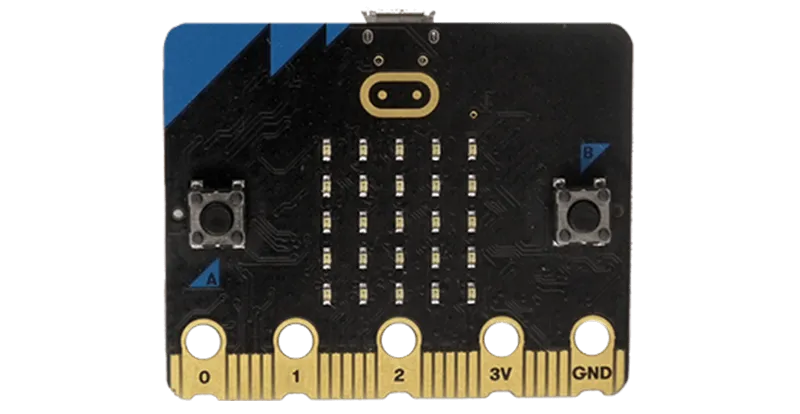
To connect micro:bit to one of the many DUElink modules, you can use the LinkBit module. It extends the micro:bit edge connector and adds a Downlink connector.

Go beyond and use RaveBit empower your micro:bit with a 1.8" graphical display. Use Microsoft MakeCode to control the display directly and then add any DUELink modules you need to the included Downlink connector.
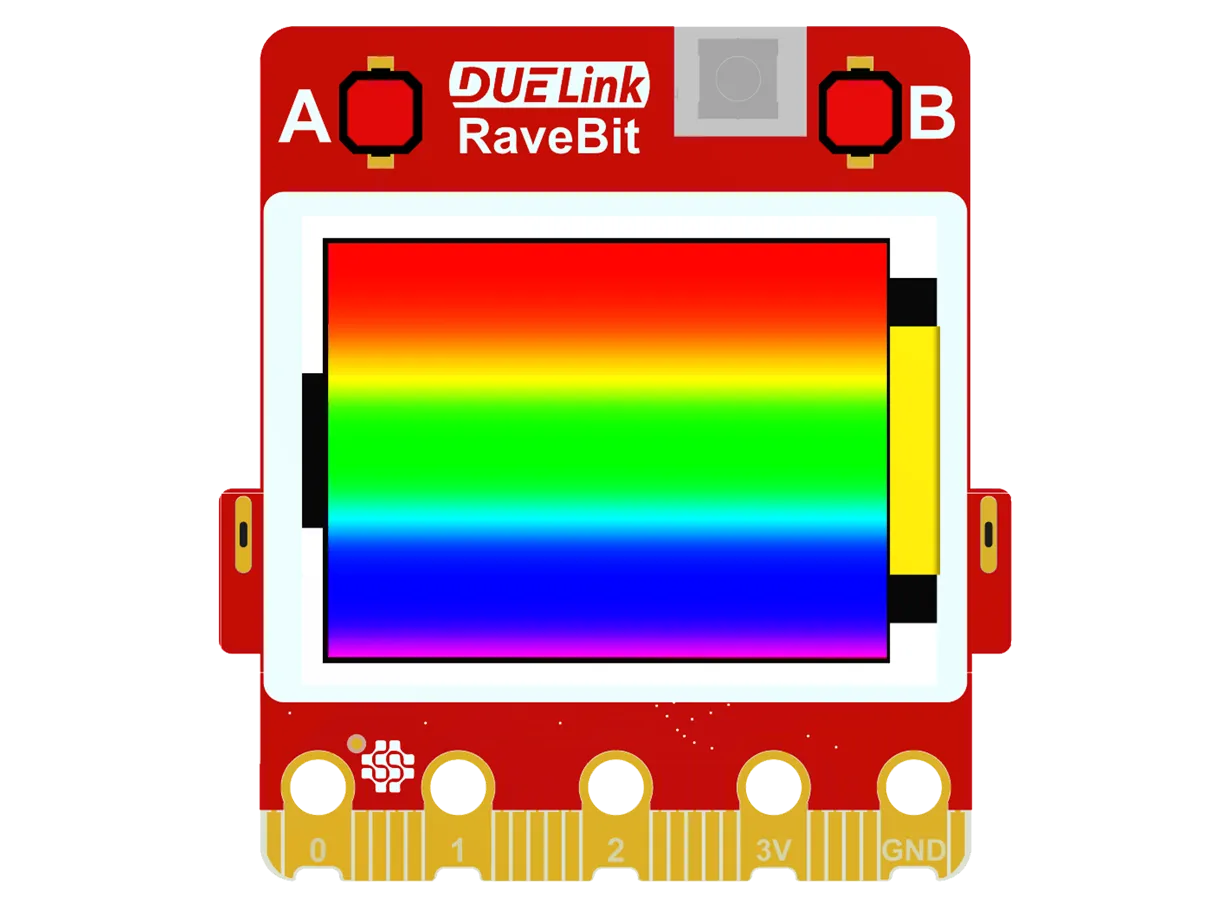
Alternatively, you can also use any of the boards that include an on-board JST connector like the Sparkfun Qwiic micro:bit Breakout

This board includes two JST sockets. One of them becomes a Downlink bringing you hundreds of DUELink module options that connect in a Daisylink.

Most of these third-party boards don't have the required pull-up resistors on the I2C bus. This might not be a problem in most cases, but we have a PullUp module to solve this if there's an issue. When using our LinkBit adapter, a PullUp module isn't needed.
MakeCode
Microsoft MakeCode is the most used interface with micro:bit. It is block-based, making it an easy choice for beginners and young learners.
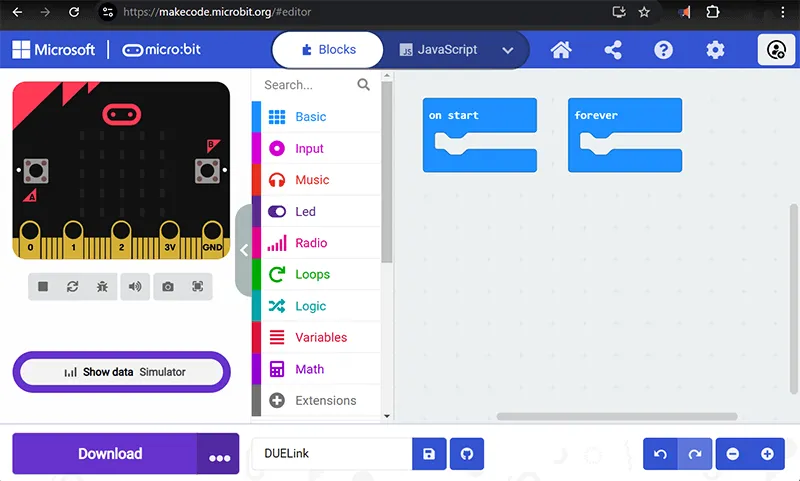
The MakeCode page has everything you need.
MicroBlocks
MicroBlocks is a great option to program micro:bit using blocks.
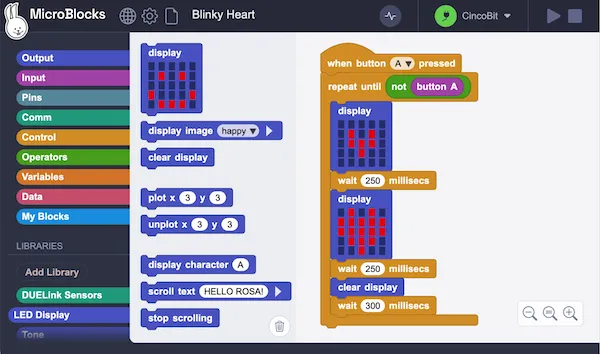
Did you know that MicroBlocks can run directly on DUELink modules? See "Alternatives" below!
The MicroBlocks language page has all necessary details!
Alternatives
One of the common uses of micro:bit is through utilizing alligator clips to wire motors and sensors.

If you enjoy the edge connector and alligator clips, DUELink offers bit-compatible boards, such as the ultra-low-cost CincoBit and also PixoBit that includes a display.
The DUELink CincoBit and PixoBit work like all other DUELink modules, through DUELink Scripting Engine or the Arduino IDE.
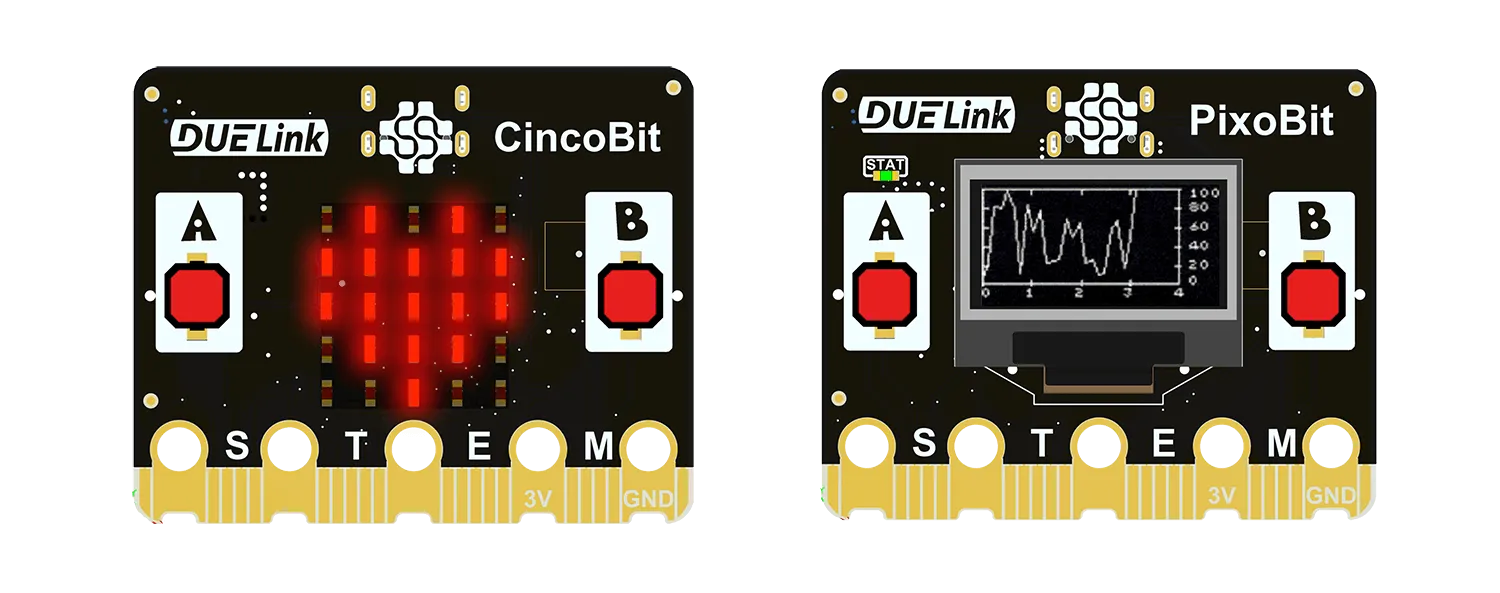
These microcomputers can be used with micro:bit accessories, like in this robot!

With MicroBlocks support, users can do everything in block-coding, from connecting micro:bit accessories, to DaisyLinking modules.
Typically, miro:bit accessories ship with "MakeCode Extensions" that are provided by the the accessories' manufactures. These extensions do not work in MicroBlocks. The user needs to have some basic electronics experience to know how to use these accessories.

See MicroBlocks page to get started.